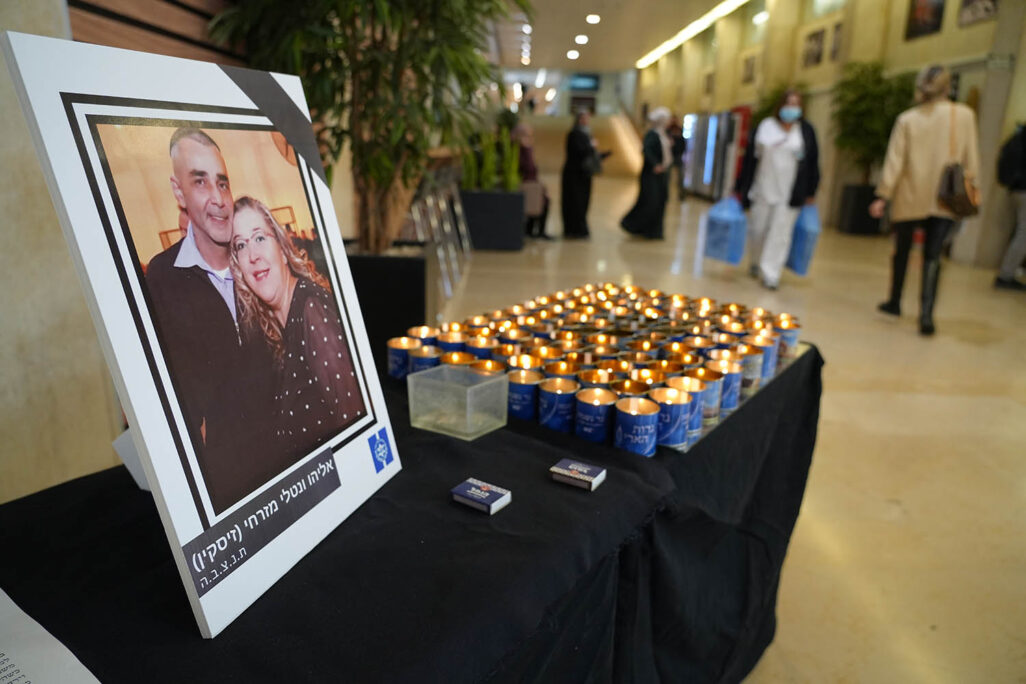
Natalie Mizrahi, 46, from Beit Shemesh, and her husband Eli Mizrahi, 48, were amongst those murdered last Friday night in the terror shooting attack outside a synagogue in the Jerusalem neighborhood of Neve Yaakov. "When we heard that Natalie wanted to help the victims, it made perfect sense to us. That’s the Natalie we know, someone who is willing to give of herself wholeheartedly," said Brucha Assayag, head of nutrition service at Hadassah Mount Scopus Hospital.
The staff in the kitchen at Hadassah Hospital, where Mizrahi had worked for 20 years serving food to patients, are in pain and still cannot process her loss. "Natalie was an integral part of our team," Assayag said. "Working with hospital patients is unlike any other profession. Not everyone can work with patients. It requires dedication and care."
According to Assayag, Natalie knew each patient's special dietary needs. "I think even the patients are having a hard time adjusting to her death; they know that only yesterday she was there and today she is gone."
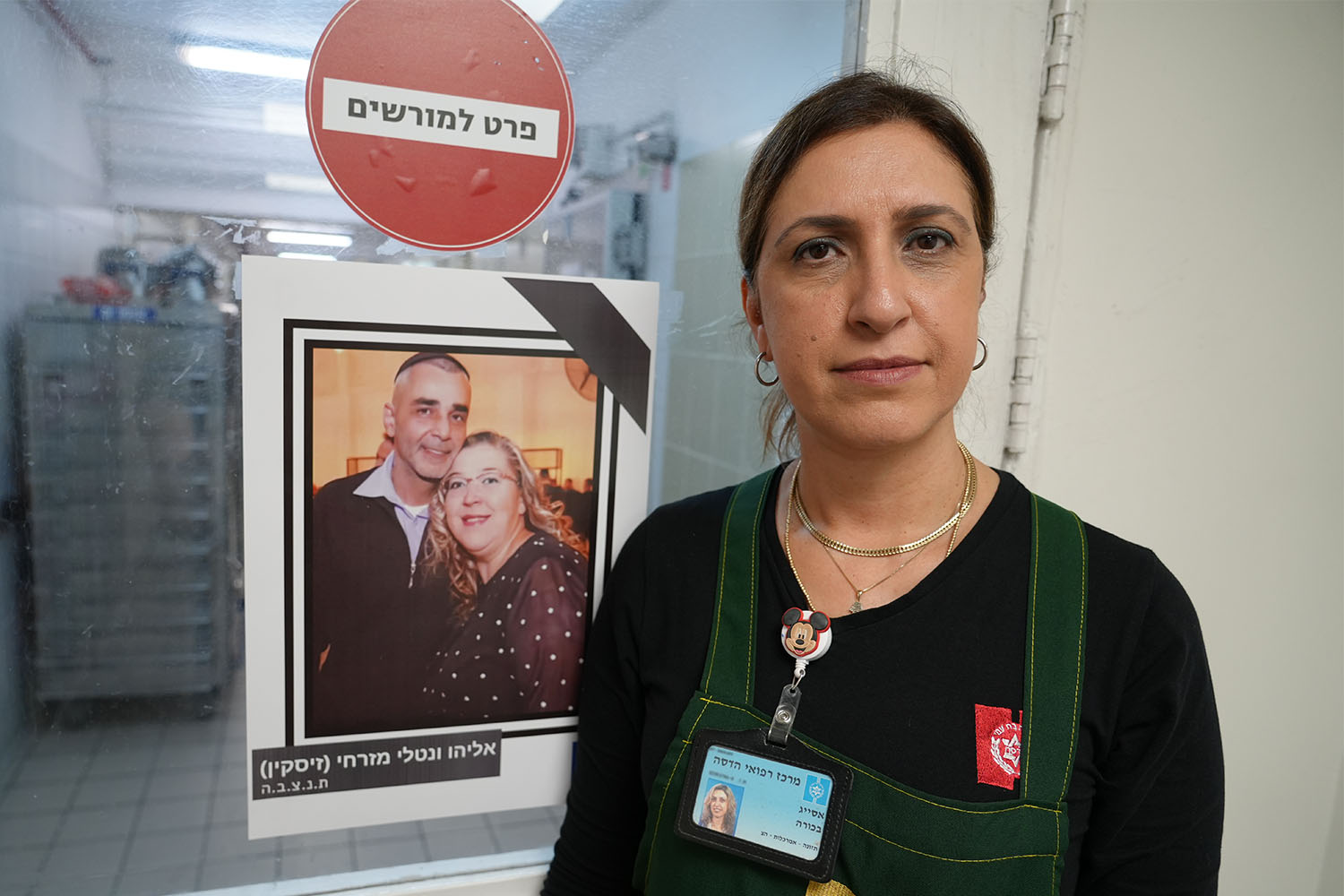
Mizrahi worked the evening shift, from 3-7:30 p.m. According to her team's calculations, Natalie would barely have had time to get to her husband Eli’s parents’ house in Neve Yaakov before the 8:15 p.m attack. "I received a call that someone arrived at the hospital injured, and that maybe it was Natalie. I couldn’t understand how she managed to end her shift so recently and suddenly be back here injured."
Coworkers reported that Mizrahi thoroughly enjoyed her job. "When we stood in line to arrange the food trays, she liked to make sure that each tray was clean and tidy," said Assayag. "She wiped each tray herself, made sure that the napkin was folded just right and that the cutlery was straight. As if she herself was going to eat from every tray."
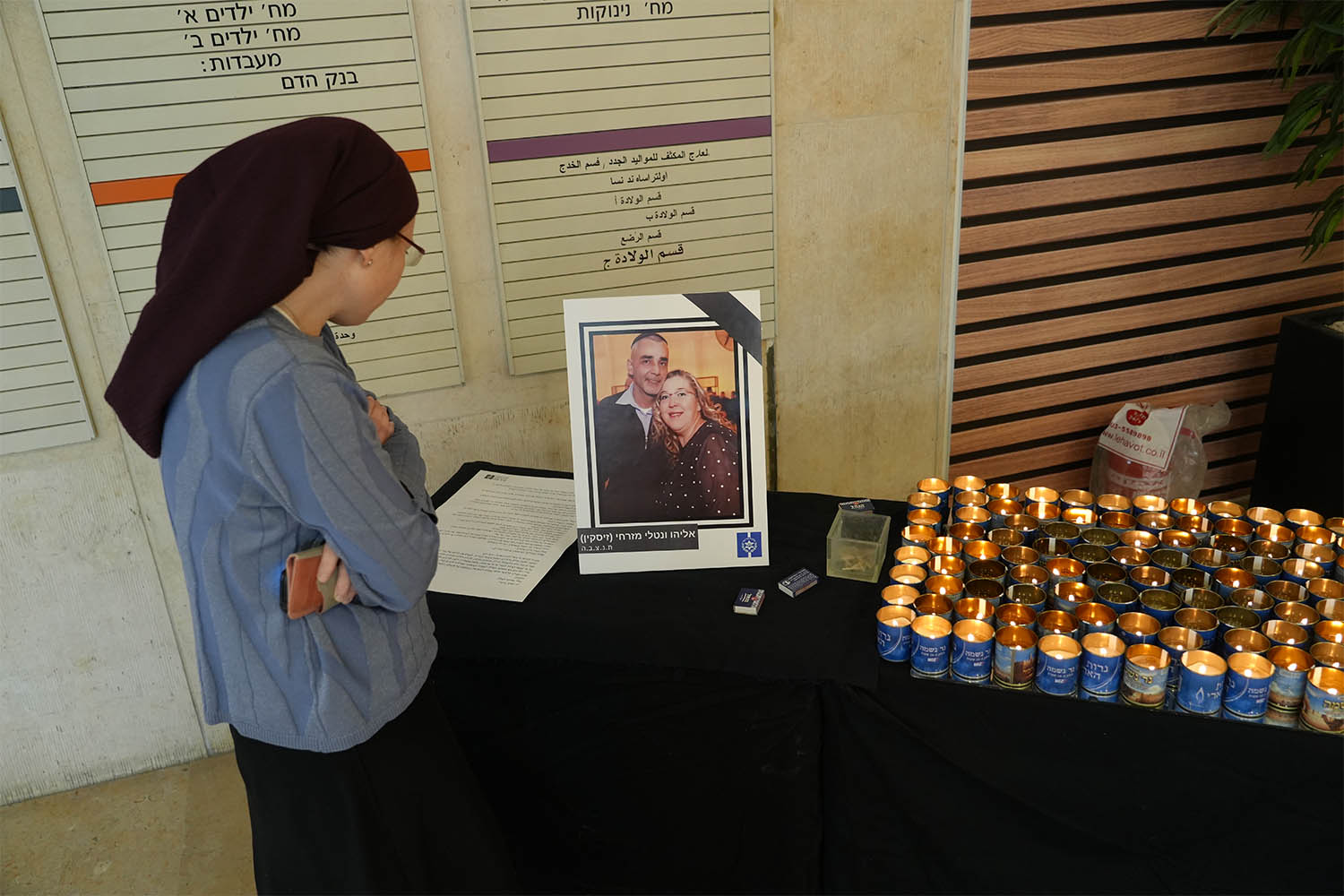
According to Mizrahi’s coworkers, Mizrahi tended to all of the wards in the hospital, but the internal wards were her home. "She spoke Arabic. She also knew Spanish and other languages. She would talk to the patients and sit with them. A real connection was created, it went beyond just serving food. She knew all the patients and they always remembered her."
Mizrahi met her husband Eli in the hospital when his mother was admitted to the internal ward. "Her husband was charming," Assayag said. "A kind and caring person, we were so happy when she told us about the engagement." At the same time, after her father passed away, Natalie took care of her mother with devotion. "When she took time off from work, it was never really time off. She would take her mother to treatments or errands. It was admirable. It was very difficult for me to see her mother at the funeral and to know that Natalie's care for her would no longer be there."
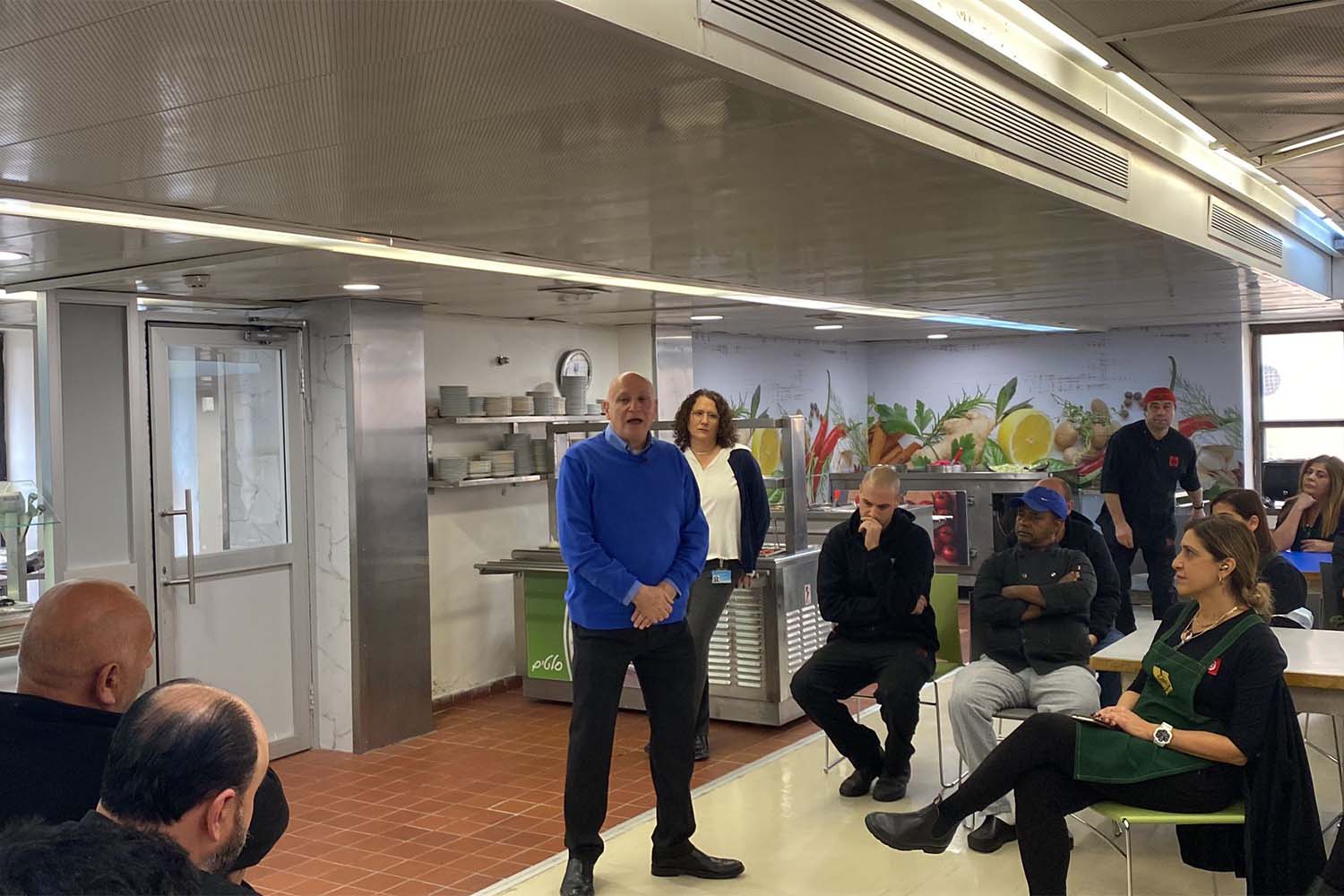
Mizrahi had a close relationship not only with the kitchen staff, but also with the cleaning staff. "She had a connection with everyone. Of all backgrounds, Jewish or Arab," Assayag continued, "When one of the cleaning workers' sons was admitted to the children's ward, Mizrahi immediately offered to do shopping for his family.
"It's hard for me to talk about her in the past tense because she's still here," Assayag said through tears. "She's everywhere in this kitchen and in the whole hospital. She's still listed in the work roster and I can't bring myself to erase her name."
The employees of the department have been going through a difficult time since last Friday evening. "We are feeling a storm of emotions. The fact that we are here at work together makes it easier for us. We share stories and memories throughout the day, and occasionally stop to cry and hug each other. It’s unthinkable that something like this happened to a woman like her. We are like a family. The patients will remember her. The medical teams will remember her."
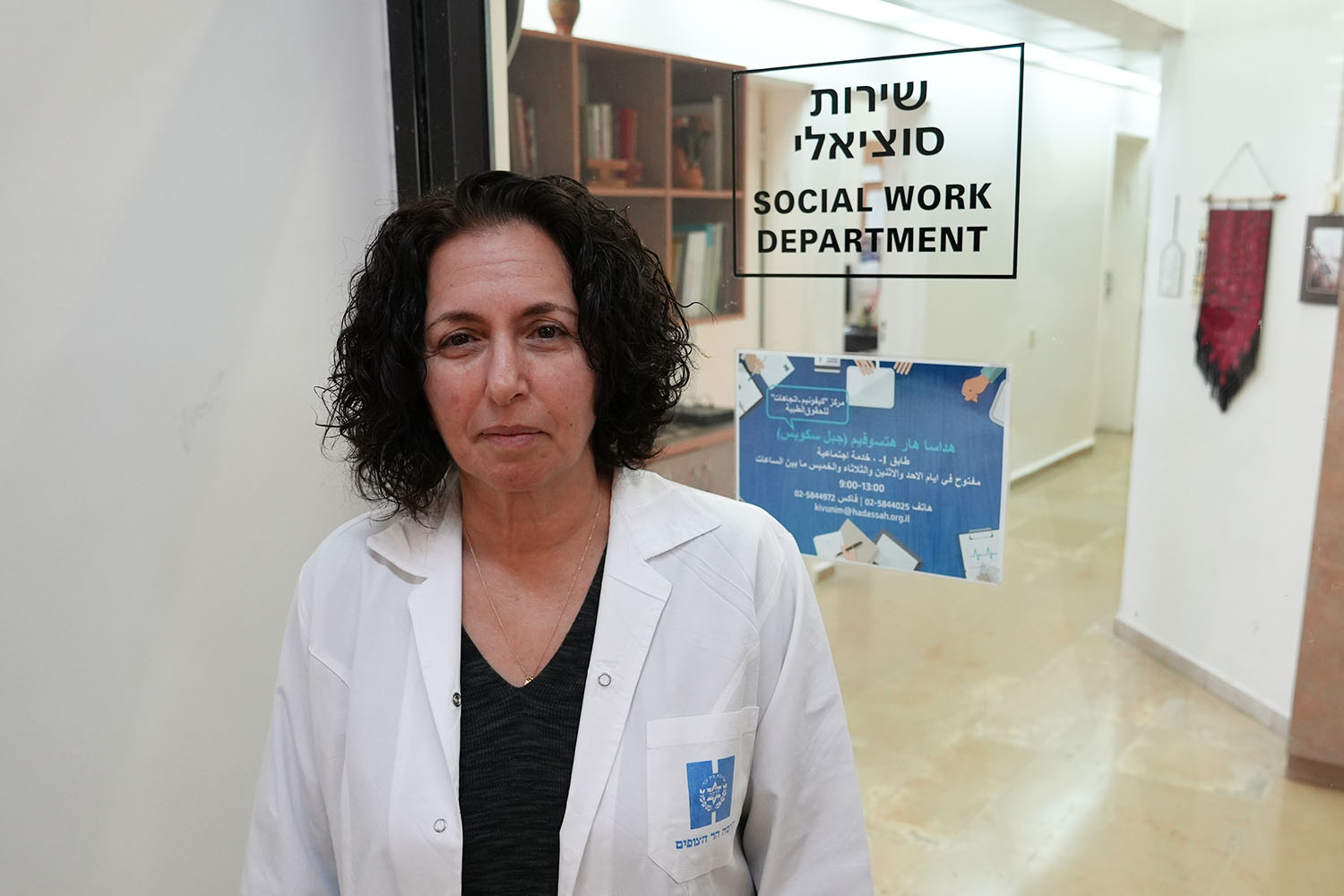
Noa Shemesh, director of the social work department at Hadassah Mount Scopus, cares for the staff who are struggling to cope with Mizrahi's murder. "A really difficult thing has happened here at the hospital. Dealing with violent incidents is always complex, and realizing that we lost a colleague that we work with added to this complexity."
According to Shemesh, the hospital administration, the employee welfare department and social workers are offering help to the medical teams that treated Natalie as well as to her co-workers. The hospital CEO, Professor Yoram Weiss, and the director of Hadassah Mount Scopus, Dr. Tamar Elram, met with the kitchen staff to bolster their spirits and assure them of their full support. "Natalie was loved at the hospital," said Shemesh, "we appreciated her sincerity and her desire to help. We try to save lives, but unfortunately in this case we could not save our friend."
This article was translated from Hebrew by Rose Angela.






